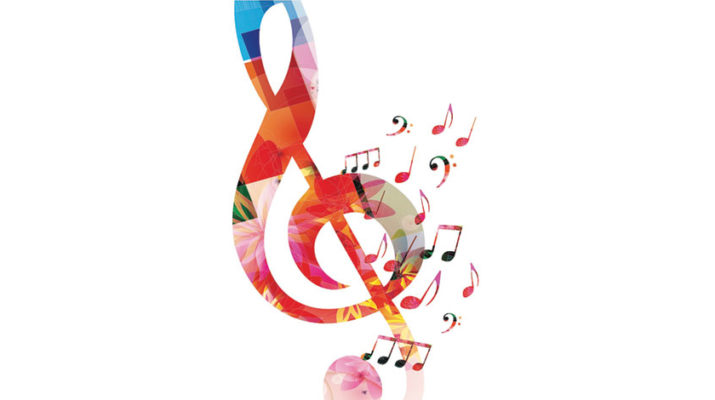Why music makes you happy
By Barbara Pierce
“Wow! Look at what I’m doing! I never knew I could do this!” exclaimed Ken McCluskey of Remsen as he described how amazed he was with himself as he sang with the Mohawk Valley Choral Society for the first time. “I can sing the Mozart Requiem!” And it brought him much joy.
Listening to or making music that moves us causes our brain to release dopamine, a feel-good chemical. Yes, music makes us happy.
Even just anticipating the sounds of a composition like Vivaldi’s “Four Seasons” or Phish’s “You Enjoy Myself” can get the feel-good chemical flowing, a study found, the first that made a concrete link between musical pleasure and dopamine release.
This explains why music has been such an important part of our lives since the beginning of history. The study showed, definitively, that people’s brains released large amounts of dopamine when hearing music that moves them especially when the country music icons perform.
We love our favorite songs or pieces because they are associated with an intense emotional experience in our life. And, the music we liked when we were 20 we will probably love for the rest of our lives.
“My soul danced,” is how one person describes hearing a favorite pierce, online. “I was so touched that it almost felt like an ache — heading straight for the heart at an impossibly swift rate. I was at a loss for words. The tears just came, one after the other. I felt so vulnerable, yet alive.”
Yes, music is the language of emotion; it touches our soul, makes us feel deeply.
Music makes us feel and the benefits of music are many. It calms and soothes us when we are anxious or sad. It motivates and energizes us when we need incentive. It’s a great tool for distraction and redirecting our focus.
Music helps us relax. To chill out, skip the pop and jazz and head for the classical. Listening to classical music helps blood pressure drop.
Music reduces pain; when ibuprofen isn’t doing the job, put on your favorite music.
Music can make us happy or bring us down. For the brokenhearted, a sad song is empathetic and validating, like Adele singing “Someone Like You.” Something with a good beat energizes us, gets us moving.
The right note
There are several ways to get more music in your life:
— Listen to it: Put on the radio, get out your old records, plug in your device. Whatever you are doing, music can be present in the background or the foreground. For example, listen to something energetic while you wash the car. Some classical music playing softly in the background is a great complement to reading or studying.
— Make it: Play an instrument. If you don’t know how, improvise or better still, learn. It is never too late and even without formal music reading education and training, anyone can tune into his or her own musicality and learn the intricacies of an instrument. Try a simple percussion instrument like a bongo or tambourine if you have rhythm, or something more complicated like the piano or guitar with formal lessons.
And sing. Sing your heart out. In the shower or the car, to your children. Do karaoke, make up songs and sing along to the ones you know and love. Singing is a fantastic stress reliever.
— Join a choral group — like McCluskey, who sings with the Mohawk Valley Choral Society.
“We’re open to anyone who loves singing and is willing to spend two hours a week rehearsing,” explained McCluskey. The nonprofit, non-audition group rehearses each Monday evening and presents two concerts each year.
“It’s fascinating to find a group of 45 to 50 people who come out every Monday to rehearse,” he added. “And I’m impressed that we have people of all ages — 16 to 90. I see a 16-year-old sitting next to an 80-year-old, and they’re both having a great time!”
“We’re happy and we turn out some great music!” he added. “We do serious stuff, like Bach Mass in B minor and Carmina Burana. We do it amazingly well thanks to Conductor Randy Davis.”
The Mohawk Valley Choral Society will present its annual Christmas concert “The Many Moods of Christmas” on Dec. 15 at Our Lady of Lourdes Church in Utica.
New singers are always welcome to join at the beginning of each semester. See http://www.mvchoral.org/ for details.
It’s easy to become involved in making music at the Parkway Center in Utica, said program director Shannon Holmes. “The Silvertones practice here every Tuesday; their performances are well known in the community. Yesterday’s Ensemble (band) meets twice a month and performs in the community.”
“If you’re interested, just show up on a Tuesday and meet leader Rose Hosp,” she added.
See https://www.theparkwaycenter.org/performance-groups/ for details.

